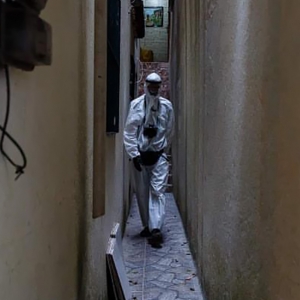The Stream, July 3, 2020: Temperatures in Great Lakes Michigan and Huron Jump Nearly 20 Degrees in a Week
The Global Rundown
Water temperatures in the U.S. Great Lakes skyrocket amid sweltering temperatures in the midwestern United States. Researchers in the U.S. and Mexico race to save the Yaqui catfish from extinction as its habitat deteriorates. The Whitehaven Coal Mine in New South Wales, Australia could face a major fine after three years of taking water without a license. New data says more than half of California schools have elevated lead levels in their drinking water. A new study by Swiss researchers establishes a link between climate change caused by human activity and alterations in the amount of terrestrial water available worldwide.
“We were able to show that this global pattern of observed changes is consistent with the effects of human-induced climate change and highly unlikely to be the product of natural fluctuations.” –Ryan Padrón, lead author of a study by ETH Zurich that claims to establish a definitive link between terrestrial water availability and climate change. Recent observations have shown that terrestrial water, the water left over from precipitation after evaporation is experiencing several alterations in its distribution across the earth. The team at ETH Zurich used historical data paired historical data with simulations of climate models, with and without human CO2 emissions, to verify their claim. ETH Zurich
Latest WaterNews from Circle of Blue
In Nigeria, Doctors Turn to Basic Hygiene to Slow Covid-19 — As the coronavirus pandemic spreads through Africa’s most populous country, a health foundation pushes for better access to water, sanitation and hygiene.
HotSpots H2O: In Somalia, Covid-19 Compounds Water Stress — The fragile situation for herders in Somalia and Somaliland, where harsh weather has stripped the land of food and water, is being exacerbated by the spread of Covid-19.
By The Numbers
Almost 20 degrees Amount that water temperatures in some parts of Lakes Michigan and Huron, two of the five Great Lakes, have warmed over the past week. Temperatures in the other Great Lakes are also soaring as high temperatures and low winds hit the midwestern United States. MLive
In context: Record Heat in 2016 Broke Lake Temperature Records Too.
$2 million Maximum fine that could be levied against Whitehaven Coal in New South Wales, Australia over two breaches of the country’s Water Management Act. The violations stem from the company’s unlicensed use of stream water on the mining site. The company has allegedly been taking the water without permission for more than three years. The Guardian
Science, Studies, and Reports
Researchers are rushing to protect the Yaqui catfish, a nearly extinct species whose habitat is being destroyed. The Yaqui is the only catfish native to the Western U.S., yet biologists know next to nothing about the species. In Mexico, the Yaqui are disappearing at alarming rates, too. They face a new threat as the Trump administration rushes to build a border wall. As the region’s water supplies and other natural resources are disrupted, researchers are racing to learn as much as they can about the elusive species in an attempt to save the remaining Yaqui. High Country News
On the Radar
More than half of California schools have lead present in their drinking water, according to data compiled by the California Public Interest Research Group (CALPIRG). In the past three years, lead was detected at 53 percent of reporting schools, with more than 2,100 drinking fountains at 1,300 schools testing positive for lead. Researchers have urged the schools to take action as districts evaluate the best way to reopen during the Covid-19 pandemic. CALPIRG
Kayla Ritter is a recent graduate of Michigan State University, where she studied International Relations and Teaching English to Speakers of Other Languages. She is currently based in Manton, Michigan. Kayla enjoys running, writing, and traveling. Contact Kayla Ritter






Leave a Reply
Want to join the discussion?Feel free to contribute!